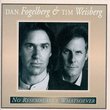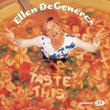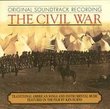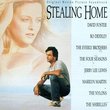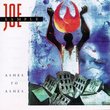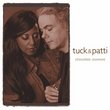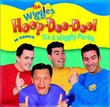| All Artists: Cole Porter Title: Very Best of Members Wishing: 1 Total Copies: 0 Label: Hip-O Records Release Date: 6/15/2004 Genres: Jazz, Pop, Soundtracks, Broadway & Vocalists Styles: Traditional Jazz & Ragtime, Vocal Jazz, Oldies, Vocal Pop, Traditional Vocal Pop Number of Discs: 1 SwapaCD Credits: 1 UPC: 602498614716 |
Search - Cole Porter :: Very Best of
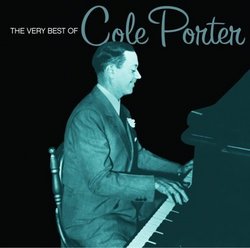 | Cole Porter Very Best of Genres: Jazz, Pop, Soundtracks, Broadway & Vocalists
|
Larger Image |
CD DetailsSimilarly Requested CDs
|
CD ReviewsBetter than the DE-LOVELY Soundtrack!! 07/15/2004 (5 out of 5 stars) "I really can't say it any better than the notes from inside the CD (read below). This is an incredible collection - just look at the artists on here - Ella, Tony Bennett, Billie Holiday, Louis Armstrong...not to take anything away from the soundtrack to the film, but this is some real starpower!! I listened to the other collections floating around out there, and THE VERY BEST OF COLE PORTER truly lives up to it's name. The amazing thing about Cole Porter is that the most sophisticated of all songwriters is also the most passionate. You wouldn't normally expect those two qualities to go together hand in hand. Indeed, one of the essential components of sophistication is coolness-a blasé quality. The most heinous breach of upper-crusty behavior would be to actually show that you care about something. Yet, Cole Porter takes passion to its ultimate extreme: people in Cole Porter songs are always at the end of their rope, they are borderline obsessives who have the object of their obsessions under their skin and can't stop thinking about him or her night and day. They are mystified, hypnotized, and every time their lover leaves them, they die a little. As one of Porter's progeny, the lyricist and showman Alan J. Lerner put it, "Cole was the only composer lyric writer in the entire musical world who ever knew how to write a passionate song. Everybody else could-when we're fortunate-write a tender song, or romantic song, or a wistful song, or a nostalgic song. But only Cole could write passion." It's in that duality-the contrast between describing the day to day activities of the uber-rich, those who keep their cool at all costs, and those of us who feel love with such a burning passion that they would, nay must, die for it. Porter himself was, likewise, a mass of contradictions, which began with his birth. How can it be that the Prince of New York sophisticates was actually born in the Midwest- Peru, Indiana no less? He did, however, enter the world exceedingly rich (in 1891), went to Yale and probably never would have had to labor a day in his life had he not wanted to. All the major songwriters created myths about themselves. For Richard Rodgers, it was his wholesomeness. Rodgers knew more about the dark side of life than he wanted you to know, and the evidence is there in his music. Irving Berlin created the character of a tight-fisted Jewish businessman, but you didn't have to look very far to find the artistic generosity in his music. Cole Porter wanted everyone to think he was a gadabout playboy, a rich dilettante who knocked off bauble-like songs in between cocktail parties and polo matches. The truth was that Cole Porter worked as hard as any coal miner-he wasn't pining over lost loves night and day, he was laboring at his piano. He had an amazingly deep knowledge of music theory. Along with Jerome Kern and George Gershwin, his are some of the most musically advanced songs ever written. And he approached each lyric like an especially intricate crossword puzzle, struggling with the thing for hours and hours until it came out right, finding precisely the right word to fit precisely the right note. The durability of the songs themselves is proof that he succeeded. A Porter song could tell a whole story, and, like that other great American artform, the blues, Porter could often communicate more with what he leaves out of a song than what he puts in. What exactly is the relationship between the singer of "My Heart Belongs To Daddy" and the individual she refers to only as "Daddy?" Is she her husband, her paramour, her father? Is she somehow challenging expectations and gender roles? Porter could be comically salacious, as he is in "Let's Do It (Let's Fall In Love)," and Louis Armstrong captures every minute nuance of the mighty man's text when he asks the listener, "What's the use of balls?" At the same time, he could be amazingly sincere, almost naïve. "True Love" is a text that suspends all disbelief and approaches love with a wide-eyed innocence. Throughout, it's the contradictions that make the songs work. The exuberant declamations of the young swain who has found true love are almost always undercut with an undercurrent of melancholy. "You'd be so easy to love," the song goes, but it ends with a note that "it does seem a shame that you can't see your future with me." "You Do Something To Me" and "I Get A Kick Out Of You" have their protagonists only begrudgingly and not very happily admitting that their own happiness is bound up with, and even controlled by, someone else-rather like Angelo in Measure For Measure. The reality is that all your money and power and social position and intellect and logic or whatever, can not protect you from heartbreak. Although his songs can be done upbeat and swinging, "I Get A Kick Out Of You" is also potentially one of the saddest songs ever written. There are times when Porter is purely playful, as on "It's De-Lovely" and "Too Darn Hot," where the sonics of the words themselves are everything, cases when Porter the lyricist takes a backseat to Porter the composer. There's a certain kind of rhythm in "A-list" songs, and much of Porter's work is highly rhythm-driven. Other Porter songs are almost operatic in their scope and their range. "In The Still Of The Night," for example, has the sort of soaring, classical melody you might find in Jerome Kern or Giacomo Puccini. At the same time, the masterstroke of "Begin The Beguine" is that it's a virtual symphony in its structure (over 100 bars)-anything but classical in its texture and driven entirely by pan-Caribbean rhythmic modes. Porter continually finds a note of sadness in the highs and a hint of optimism in the lows. "Love For Sale" and "Just One Of Those Things" are nothing if not arias of resignation, yet there's a haughty hint of defiance in the first and optimism in the second. In Porter's songs, as in his life, nothing is ever exactly what it seems. His melodies and lyrics have inspired great instrumentalists and vocalists and beguiled listeners for nearly a century, and they show no signs of stopping now.Will Friedwald New York City December 2003" Disappointed S. Freedman | 11/14/2004 (2 out of 5 stars) "Cole Porter's songs were written in the 1920's, '30's and '40s. However, all the cuts on this recording were produced in the 1950s (except one from 2003). I found them over-produced, with flashy orchestration, sung as if the singers wanted to draw attention to themselves, almost competing with Porter (Fitzgerald somewhat less than the others). If you like the '50s style, you'll like this CD. If you want the flavor of the '30s and '40s, you'll be disappointed." Sigh of Relief MovedbyMusic | 08/02/2004 (5 out of 5 stars) "What an astronmical composer. I just am completely amazed by how many gorgeous songs Cole Porter wrote through the years. The voices on this cd are perfectly matched to sing these lovely songs. What a great cd. If you saw the movie "De-Lovely" and didn't like the soundtrack (I didn't either) but are enamored by Cole Porter's wonderful music this one is a great find."
|

 Track Listings (18) - Disc #1
Track Listings (18) - Disc #1